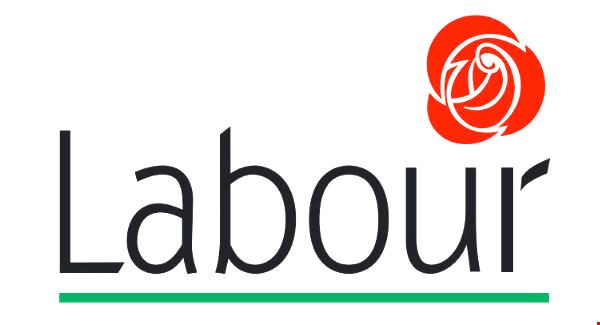The Labour Party finds itself at a political cross road and facing an existential crisis. In 2016 the party experienced its worst election result in its 104-year history.
In that election we returned with just 6.6% of the popular vote and only seven TDs. Since then polls have shown support for the Labour Party consistently between 3% and 4% and struggling to connect with voters.
For the Labour Party to stay relevant, our representatives, along with our membership, must face this reality and prepare ourselves for the prospect of experiencing further electoral losses.
However, while the Labour Party experiences these challenges, the need for a political movement to represent working people and address the power imbalance between capital and labour is stronger than ever.
The economic crisis that started over a decade ago has had a lasting and devastating impact on our country. The transfer of banking debt to sovereign debt in the bank bailout was a catastrophe, one which the Labour Party rightly voted against.
The subsequent crisis, thousands of people unemployed, the crushing weight of austerity, and loss of sovereignty to the Troika resulted in some of the darkest days for the republic since Independence.
The current narrative suggests that we, as a country, have emerged from the worst of the financial crisis. But in 2018, Ireland is experiencing several challenges; a housing crisis with record numbers of people becoming homeless and a shocking number of children living in emergency accommodation. Waiting lists continue to grow in our hospitals.
A failure to create a quality, state-funded child care system is increasing pressure on families, resulting in the bizarre granny grant proposal last week. The inhumane system of direct provision continues to exist. We have failed to protect our environment, producing and dumping mountains of unnecessary plastics each day and failing to meet our climate change targets.
Almost every problem listed above has been made worse by the impact of greed, by unchecked market forces and capitalism. Our housing system protects landlords before renters, allowing vast increases in the cost of rent in recent years.
Too much of our health care system is privatised and outsourced, where those with the ability to pay more receive better quality care. Our ad-hoc and for-profit child care system results in low wages for the staff working in the industry but high costs for parents.
Through the intense sacrifice of people living in Ireland, we have emerged from the worst of the financial crisis. However, power and wealth remain vested in the few. Many workers continue to pay USC without seeing the benefit of improved public services.
People have jobs but huge numbers are commuting hours each day, taking them away from their families and communities and impacting on their health.
The principal of equal pay for equal work has been lost, with new-entrants to the public service still suffering from a lengthened and unequal pay-scale for completing the same work as their colleagues.
To understand why I believe the Labour Party can offer solutions to these issues, we need to look back, at why the party was founded and what it stands for. We must also reflect on where things have gone wrong and recreate a pathway for the party to stay relevant.
The Early Years of the Irish Labour Party
The Irish Labour Party was founded in 1912 by William O’Brien, James Larkin, and James Connolly as the political wing of the Irish Trade Union Congress.
The party was founded as the political weapon of the working classes open to all men and women regardless of their past political affiliations.
As the oldest party in Ireland, it was founded before partition and organised on an all-Ireland basis. Equality was a founding principal with the goal of “complete political and social equality between the sexes”.
Its visionary leadership not only believed that the unity of workers could change society, but set out to achieve this aim against huge odds.
In 1913, James Larkin led the workers in the great lockout. For eight long months, workers seeking better pay and conditions, and the right to association within a trade union, were locked out of their workplaces, without pay or protection.
These workers stuck to their principles, only accepting defeat when their children were on the point of starvation. After this defeat, the labour movement regrouped and led the working class struggle once again in 1916, with James Connolly leading the Irish Citizens’ Army against the British Empire in the 1916 Easter Rising.
His leadership, and the principles for which he fought and died, have continued to inspire Irish people for generations. For Labour Party supporters, the last seven years, with President Higgins leading our country, have renewed the spirit of the early years of the Labour Party, with the President marking the centenary of the death of James Connolly and opening a commemorative garden in memory of the 1913 Lockout.
How did we get here?
In its century of existence, the Labour Party has never led a government and never led a mass movement of workers. In 2011, Labour achieved its best electoral result in a general election receiving 19.4% of the first preferences votes. However, the 37 seats achieved was far from a majority required to form a government.
This is in contrast to the vast majority of European countries, where social democratic and socialist parties have received far more political support, formed governments, and have been able to introduce sweeping reforms.
The results of this political persuasion are seen in most European countries, where public health care is free at the point of entry and childcare is provided by the state. They have more public holidays and better roads and public transport infrastructure. These are the benefits of social democracy and socialism in action.
The lack of success for the Labour Party is partly due to civil war politics and the resulting popularity for Fine Gael and Fianna Fail.
Labour has, on occasion, gone into government with the two big parties. When we have done so we have made progress, such as increasing the minimum wage, introducing free GP care for under 6s, or bringing in legislation giving workers the right to collective bargaining.
However, regardless of our coalition partners, we have made mistakes. We promised too much in the 2011 campaign and failed to meet those expectations. Throughout our time in government there were many Labour members that argued for a different approach. It’s time for their voices to be heard.
A route forward for the Labour Party
Our minor successes as the junior partner in a coalition has been consistently outweighed by the major failures which have permeated our government terms.
The discourse from the Party leadership of preventing the worst excess of either centre right party has not and will not inspire people, nor will it change the system in favour of working people or protect those that cannot work.
The Labour Party has always had its critics and those who predicted its demise. From the earliest days after the 1913 Lockout, when the workers were prevented from joining the unions, to today. For the Labour Party to remain relevant it must set out an optimistic and ambitious policy platform to inspire a new generation of activists.
Joining the party should be as easy and inexpensive as possible. When new members join, their voices must be heard.
They should be able to influence the direction of policy and be given the opportunity to represent the Party in elections, not simply to follow a party line, but in order to effect real change.
In America young left-wing activists, inspired Bernie Sanders’ bid to become the Democrat Presidential nominee, have joined the party, changing the policy platform and in candidates such as Alexandria Ocasio Cortez they have won against more established candidates.
These campaigns have been successful from the ground up, working in communities, and building support one street at time. They aren’t dependent on the leadership of the party. The same is possible in Ireland.
The Labour Party will forever be linked to the union movement and we are proud of it. Unions are often attacked in Irish media. Constantly workers are pitted against one another, public workers against private, current employees against new workers.
We know that when more people join a union wages increase, and inequality is reduced. Unions have won major concessions for their workers, but unions are constantly attacked by the same forces that attack the Labour Party. The Party will stand by the workers and the unions. We must constantly challenge those that seek to divide workers.
During the Celtic Tiger our culture promoted those that wanted to get ahead of others. This individualistic culture is now back in force.
The Labour Party and Unions must make the case for people working together, making sensible policy that benefits everyone, rather than a risk-based culture that benefits a few.
The Labour policy platform should include the provision of a fully public health care system. It should include a fully funded child care system which provides not only a quality education for our children, but allows for professionals within this sector to be paid a decent and living wage. We should ensure good quality housing for all, in homes that are built to a high standard and linked to school, transport routes, and amenities that are essential for families and communities.
The Labour Party must put environmentalism at the centre of our policy. Stopping the production of single use plastics and ending our dependency on fossil fuels.
There are those that would argue this platform is unrealistic, that the country could not afford it. I would argue that country couldn’t afford to take on the debt of our entire banking system, that we cannot afford to allow a child care system that means families have to depend on the child’s grandparents. The country cannot afford the consequences of climate change
When James Connolly woke up on that Easter morning in 1916, he stood against an empire and helped create a better future for our country.
Those that follow in the Party he founded must believe in a new future and campaign to fight for it. This work is possible and we must start today.
SEE ALSO – Laois Labour councillor calls on Brendan Howlin to resign





















